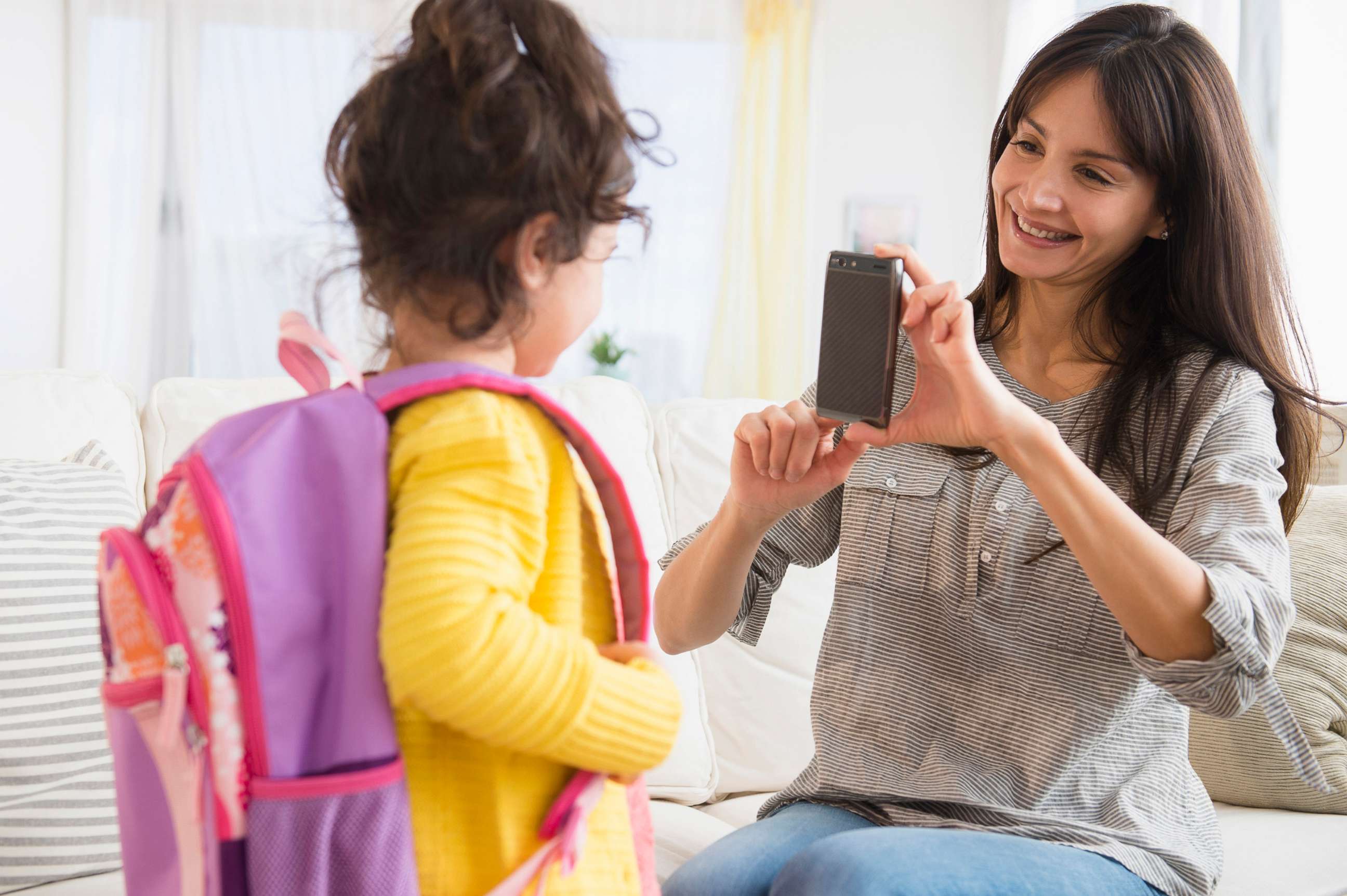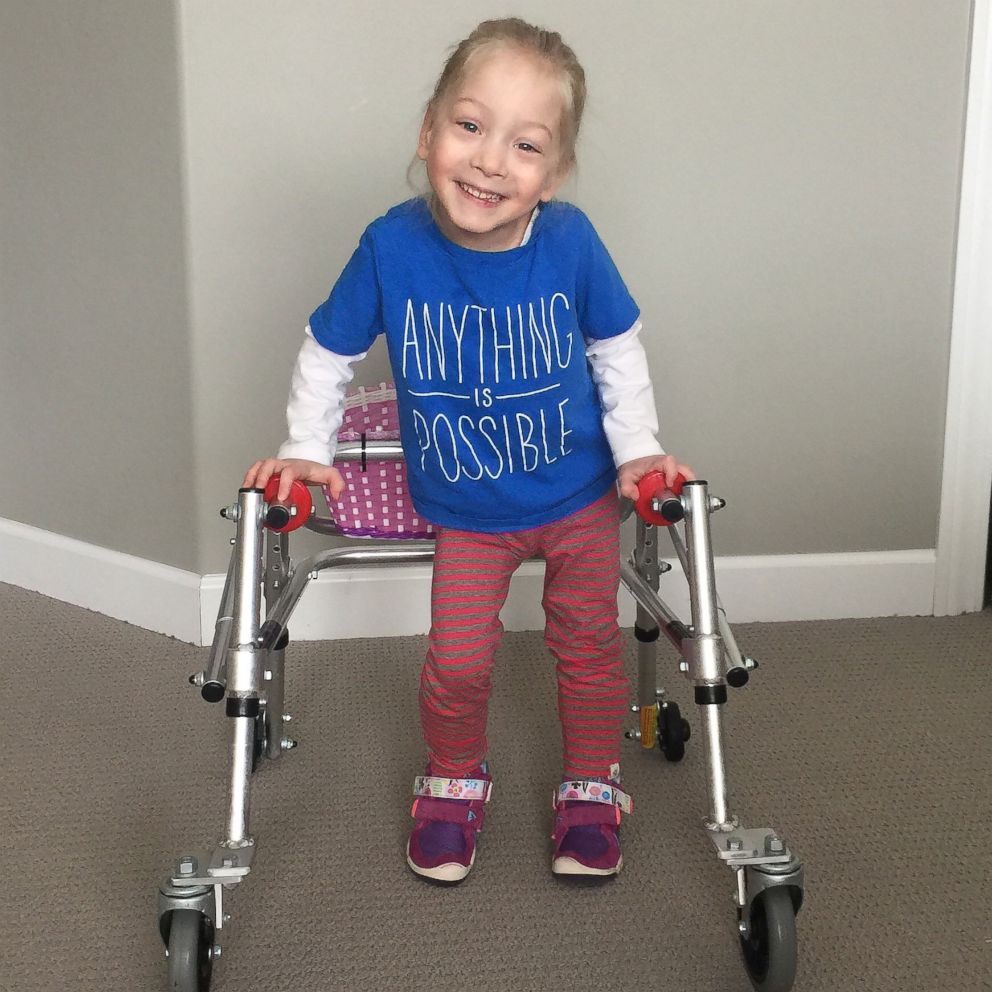What parents should know before sharing back-to-school photos online
It may seem harmless, but there are risks involved when sharing online.
Sharing back-to-school photos on social media with family members and friends has become a cherished tradition among parents every August and September.
The trend has been a mainstay, with parents posting pictures of their kids holding signs that showcase details like their child's age, grade, school, teacher or afterschool activities, and the photos are an easy way to keep loved ones updated. But although it may seem harmless, privacy and security experts say parents and caregivers need to be aware of the inherent risks of sharing pictures and identifiable information online.
With the new school year fast approaching -- or underway already in some parts of the country -- one sheriff's office in Virginia took to Facebook to share safety guidelines for parents, writing in part, "DON'T OVERSHARE."
The Loudoun County Sheriff's Office shared a Facebook post Tuesday urging parents to share general instead of specific, identifiable information about their children online.
"Back-to-school photos often include personal information such as your child’s name, school, grade, age, and other potentially identifying information -- all of which can give bad actors too much information," the sheriff's office wrote. "No matter what your social media privacy settings may be, the safest option is to keep personal information to a minimum."
The St. Louis County Police Department also shared in an August 2022 Facebook post examples of the kinds of photos parents can safely post online.
The post shows a sign on one side that reads, "First Day of School," which poses less of a safety risk to families, while the photo of a more detailed sign, with details about a child's classroom, grade, and favorite items, is reserved for "family and close friends" instead.
"Remember to stay mindful of the info you post online. Use the sign on the left for social media, and the chalkboard on the right to share pics with close friends and family like Officer Ashley did," the department wrote in the caption at the time.
Others have also warned against posting photos of back-to-school details online, cautioning that strangers may be able to use that information to not only target children but their families as well.
What to be aware of
Darren Hayes, an associate professor at Pace University in New York City, who teaches cybersecurity, digital forensics and threat intelligence, told "Good Morning America" previously there are several things parents should consider before posting online.
Physical security
"If your child has a routine and the child talks about when a parent is coming to pick them up or what the father does for a living or that kind of thing, then people know when you're away from home and you're more susceptible to burglaries," Hayes said.
Tagging a physical location, checking into a location or otherwise sharing location information when uploading photos can pose a security hazard, according to Hayes. The concept applies when you give permission to phone apps and computer software to use location services as well.

"The other really important thing as well is not to enable location services with your photos or with some of the apps that you use," Hayes said. "Once you enable location services for those social media accounts on your phone, you are continually beaming out your location and it's not very difficult for people to determine where you are."
Identity theft
Sharing photos and information also opens the door to the possibility of stealing. Sometimes it can be obvious -- but other times, it can be subtle.
"One of the things that I heard recently was where somebody had taken a picture of themselves and if you actually focused in on that picture, you could see a bank statement for an account belonging to one of the parents," Hayes said.
"What's in the background? There could be an identifying building that shows that you are away from home, or that you're at a specific place," he continued. "So you've really, really got to be careful about those kinds of things as well."
Lack of privacy
Even if you don't make social media accounts public or share only with a small group of trusted individuals, Hayes said parents and caregivers should never consider any shared photos or posts private.
"What a lot of people don't realize is that they have different accounts marked private, maybe their LinkedIn account or something like that, and then somebody else in the family may have their account that is not marked private … and so, that is often a way that people can gather information about another person," Hayes said.
"Assume that what you have in your email inbox or pictures that you share could one day be shared outside of your group and just go with that assumption," he added. "Is it right to send this information out? Is this going to come back to bite me one day? It's going to be important as your kids grow older, when they go for that college scholarship or they go for that job interview, what information is really out there."
Cropping a photo also doesn't guarantee any privacy.
"People sometimes crop photos thinking that they're being more secure, but those photographs can also be uncropped by other people, and so people can see other information about you or where you are," Hayes added.
Anyone can be at risk for identity theft or fall victim to a data breach. There is also a possibility that someone's account may be hacked or compromised in some form and taking a digital photo means there will be information or metadata stored alongside the file.
"Remember that whatever picture you take, there's always going to be some kind of metadata that displays what kind of device you're using," Hayes said.
Online harassment and abuse
Both parents and children should be aware of the possibility of harassment, or worse, online, Hayes said.
Keeping kids safe online
"If there is cyber harassment going on, the immediate reaction is to delete all this information -- and parents will often delete that information, which is the wrong thing to do, because sometimes, the police can't act until there's a threat of violence," Hayes said. "But if you maintain all of those chats and all of that information about that interaction that somebody is having with you, it makes for better evidence that you can bring to your local police precinct, for example."
"Take notes of everything that happened as well," Hayes added. "So when you write down dates and times of things that happened, that's really, really important, especially if there is going to be an arrest ultimately, which sometimes does happen."
What to do to protect you and your family
The Federal Communications Commission offers guidelines for security measures to take when it comes to smartphone use. These include creating complex passwords, installing apps from legitimate companies, reviewing app permissions, and avoiding the use of public and open Wi-Fi networks.
Like the FCC, Hayes recommended parents make sure apps and software are regularly updated.
Parents should also avoid using one online account, like a Facebook or Google account, to log into multiple websites and apps if possible.
"The problem with that is people don't realize that they actually are doing what's called deep linking, where they are connecting lots of different social media information and bringing that together," Hayes explained. "The more information that people have about you, the easier it is to target you unfortunately."
"There are services for example with your iPhone where you can hide your email address when registering for certain things," he continued. "So you might want to think about that, using in-private browsing mode … [and] when you get that option not to accept cookies, don't accept them on your web browser."
Consider online monitoring
"I would definitely recommend that [parents] have some kind of app that can track children," Hayes said, citing the "Find My" feature on iPhones as one option.
Snapchat reveals new tracking feature to keep college students safer
And at the end of the day, parents should talk to their children about the safety risks when sharing online and what to do if they find themselves in an emergency situation.
"Teach them about if they get into danger, what they can do," Hayes said, noting that iPhones have an "Emergency SOS" feature that parents can enable.
This article was originally published Aug. 30, 2022.







